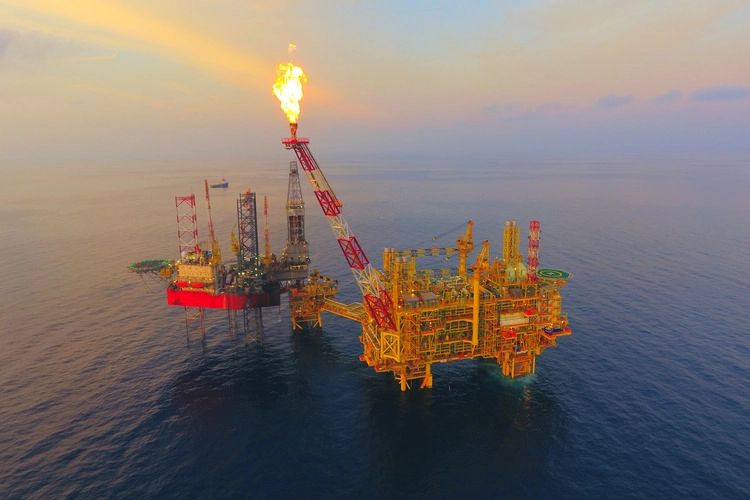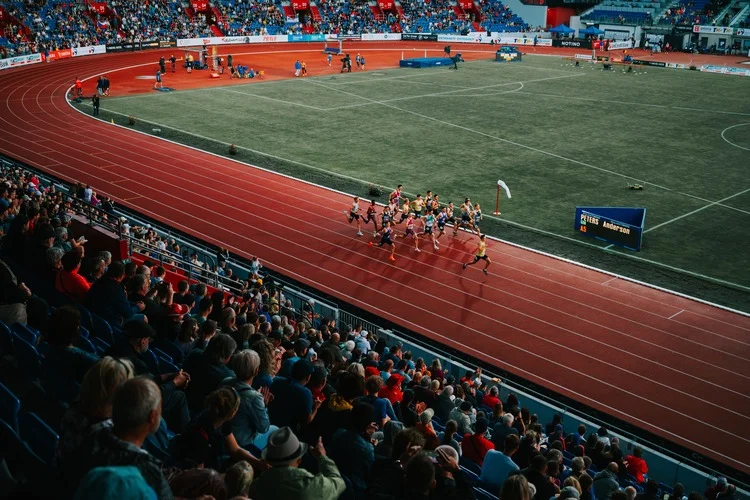
Most major sports are sponsored by fossil fuel companies. Here’s how sportswashing is damaging our planet and the sports industry alike
By
What is sportswashing?
$5.6 billion. That’s the figure believed to be spent by both state-owned and private fossil fuel companies on sponsorship for major sports, across 205 deals. Football takes number one spot –with 58 active deals – followed by motorsports (39), rugby union (17), golf (15) and ice hockey (15).
This constitutes sportswashing – when companies use sports sponsorships to redirect public attention away from unethical conduct and practices elsewhere. Sports’ positive association with health, as well as values including teamwork and respect, means it becomes an appealing sector for fossil fuel companies to use to detract from damaging practices.

As fossil fuels continue to dominate as the leading cause of climate change – contributing to 75 per cent of greenhouse gases and 90 per cent of carbon emissions –the question arises: should major sports rethink their relationships with fossil fuel companies? Following the recent report published by the New Weather Institute, the answer seems to be a resounding yes.
Who is involved in sportswashing?
Major fossil fuel companies – including some of the world’s largest – have long been affiliated with the sporting world such as Shell, Ineos, TotalEnergies and Aramco.
Aramco – the world’s most profitable company – is estimated to have contributed to more than four per cent of global greenhouse gas emissions since 1965, and five per cent of global emissions from 2016-2022. It is currently FIFA’s ‘Major Worldwide Partner’, in a deal expected to run until 2027 and worth $100 million each year.

The company has also made a partnership with Aston Martin Racing, a sponsorship deal with Concacaf (the governing body that oversees football in North and Central America, and the Caribbean), as well as a long-term global sponsorship with Formula One.
Ineos, a relatively new petrochemical company, has an extensive array of sports sponsorships from investments in Mercedes F1 team in 2020 – in a deal worth $128 million – to multi-year sponsorships with UK football team Tottenham Hotspur. Ineos has also recently signed a deal for a 27.7 per cent stake in Manchester United, worth an estimated $1.6 billion.
Related articles:
TotalEnergies – a company known for its lack of sustainability, after incidents including forcing individuals off their land in Uganda and Tanzania, and displacing Indigenous people in Argentina for projects – has worked with major sports events across the world. In 2023, it sponsored the Rugby World Cup in France, and sponsors motorsports including one of France’s top racing teams, Team TotalEnergies.

Ranking 9th on the world’s historic emitters list (1892–2022), Shell’s involvement in sportswashing has also been extensive. From football, cycling and motorsports, to surfing and golf, the company is involved in sponsorship deals across the globe, totalling an estimated $469.5 million. it is an official team partner of teams including Sacramento Kings and New Orleans Pelicans basketball teams, and the American football team New Orleans Saints.
Although some fossil fuel companies promote working on climate pledges – such as Shell’s use of carbon credits to reach net zero by 2050 – these are often seen as attempts at greenwashing, with reports being made to the Advertising Standards Agency that such claims do not have substantial evidence to back them.
Promoting polluting products
Fossil fuel companies have also had strong ties to individual sporting megastars in order to promote their companies. Kenyan marathon star Eliod Kipchoge is sponsored by Ineos – a petrochemical firm investing heavily in UK fracking sites – while US pro surfer Sage Erickson, Canadian race car driver Amber Balcaen, and US pro mountain biker Samantha Soriano are all sponsored by Shell.

Although data on the exact payments that sports stars and athletes receive from fossil fuel companies is scarce, industry sources estimate that sponsorship deals may range from $50,000 up to millions of dollars. Using these stars can also constitute a form of sportswashing that is more difficult to spot, as it can appear as though influencers are expressing genuine opinions on particular subjects.
The risk to athletes
Ceasing sportswashing is important for bettering the planet and for the benefit of the sport itself. As temperatures around the world rise, heatwaves, flooding and storms all impact sporting events, resulting in a rise in match cancellations and an increased financial burden on sports.
At the 2023 US Open, tennis star Daniel Medvedev warned that a player was going ‘to die’ amid the soaring temperatures that left players hosing themselves with cold water and using ice towels during breaks.
Meanwhile, in Brazil this year – in the wake of devastating floods that killed hundreds and displaced millions – many of the nation’s football stadiums were left flooded and subsequently abandoned for weeks. Without drastic changes to global emissions, these incidents could become a common occurrence in the world of sport.
What should the sporting world do instead?
Rather than continuing ties with fossil fuel companies, major sports could enforce cigarette-style bans on sponsorships from them, according to the New Weather Institute report, instead of choosing other, more sustainable sources of funding.

Following COP28, The United Nations Secretary-General, António Guterres, spoke on the importance of cutting ties with fossil fuel companies: He called for ‘every country to ban advertising from fossil fuel companies’ and urged the professional services and creative industries to ‘stop taking on new fossil fuel clients, from today, and set out plans to drop your existing ones’.
The 2024 Paris Olympics was run entirely free of fossil fuel company sponsorships. However, it was still sponsored by Air France, Toyota and steel firm ArcelorMittal, with combined emissions equivalent to 33.6 million tonnes of CO2. Neverheless, the decision to forgo fossil fuel companies is the first step to change within the industry.

‘The fact that Paris created a fossil fuel-free Olympics games shows that it’s not necessary for other sports to accept a poisoned chalice from oil and gas sponsors,’ said Paris 2024 Olympic Champion and 2x TeamGB Olympian Imogen Grant. ‘Any short-term financial gain is just not worth it when we can see the devastating impacts that are playing out in communities worldwide, in grassroots sport and sport more widely.’
Ways to mitigate sportswashing also include enforcing data to be provided by sponsors on their emissions, as well as asking sponsors to provide measures they have taken to reduce emissions. Screening is also being proposed as a way to ensure any sponsors’ emissions fall within the Paris Agreement Goals.
Ultimately, the huge audience that sport garners – with an estimated five billion football fans alone worldwide – could become a platform to accelerate change and provide the planet with a better environmental future.




